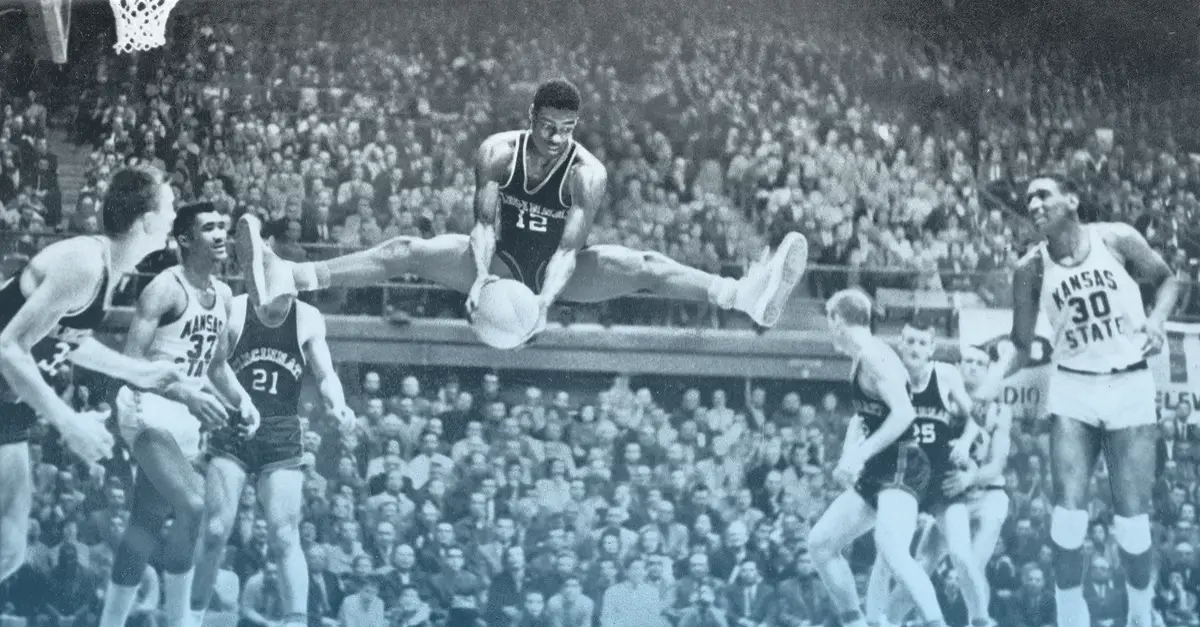Oscar Robertson changed basketball. He was an innovator, a savant, and a pioneer. He’s an NBA champion, an eleven-time all-star, and one of only two players (LeBron) ever to amass at least 25,000 points, 7,000 rebounds, and 9,000 assists. Because of his groundbreakingly well-rounded game, he’s widely considered to be one of the ten or fifteen greatest players of all time. He’s probably best known for averaging a triple-double over the 1961-62 season, but the Big O’s most important accomplishment is something for which he’s never been given sufficient credit.
Back when Oscar played, in the 1960s and early 1970s, NBA players were bound in perpetuity to the team that drafted them. Because of this rule, which came from an option clause in the league’s uniform player contract, the only way a player could change teams was if he was traded or if his team no longer wanted him. Free agency did not exist. This lack of freedom was a matter of great frustration to the players, as they had no means by which to escape a situation with which they were unhappy.
The ABA, formed in 1967, provided another avenue for professional basketball players, and thus, competition for the NBA. Prior to the ABA’s inaugural campaign, Rick Barry, in an attempt to jump from the NBA’s San Francisco Warriors to the ABA’s Oakland Oaks (who happened to be coached by Barry’s father-in-law), legally challenged the NBA’s reserve clause, which allowed teams to retain a players’ rights for one year following the expiration of their contract. The courts ultimately ruled that Barry had to either play one more season for the Warriors or sit out for a year before joining the Oaks. Barry chose to sit out. It was a courageous and unprecedented move, and it opened the door for other NBA players to follow suit.
With a bidding war underway between the ABA and the NBA, the players gained substantial leverage, and their salaries increased exponentially. Because of this, the NBA was determined to merge the two leagues and eliminate the competition engendered by this sudden alternative option. The ABA, struggling financially, was heavily in favor of the merger as well, as the fledgling league was not making enough money to survive on its own. In 1970, the two leagues agreed to merge.
Oscar Robertson had been appointed head of the NBA Players Association in 1965, becoming the first black president of a national sports or entertainment labor union. In 1970, once the ABA/NBA merger had been agreed upon, Robertson, on behalf of the NBPA, filed an antitrust lawsuit against the NBA in order to block the merger from proceeding. “Robertson v. National Basketball Association” also sought to lift restrictions on free agent signings and to end the clause which bound players to the team by which they were drafted.

Robertson’s lawsuit successfully halted the merger by way of a court-issued injunction which delayed the much-anticipated fusion indefinitely. When the lawsuit was finally settled in 1976, the merger was given the green light, but the reserve clause was eliminated and restricted free agency (whereby a player can negotiate freely with other teams, with his current team maintaining right of first refusal), was adopted by the league. This laid the groundwork for the evolution of a mechanism largely responsible for the league’s massive growth over the last forty-plus years.
Following the settlement, Oscar Robertson was blackballed. Despite being an NBA legend and one of the most intelligent players the game has seen — and despite his overt desire to remain involved in basketball — Robertson was never able to land any kind of a job in the NBA, be it front office, coaching, or advisory. He had a one-season stint in the broadcast booth, but it came to an abrupt end at the urging of NBA owners who considered Robertson an enemy of the league.
In 2017, the Thunder flew Oscar out to OKC for a brief ceremony after Russell Westbrook broke his single-season record for triple-doubles. In 2018, the NBA presented him with a lifetime achievement award, but it felt obligatory, token, like too little too late. The truth is that for more than four decades Oscar was effectively silenced. While other all-time greats were publicly lauded and given opportunities, the Big O remained hidden, almost external to the league. And that’s truly a shame, because he had so much to offer.
This season, there are fifty-six NBA players making $20 million or more. They should all be thanking Oscar Robertson.

